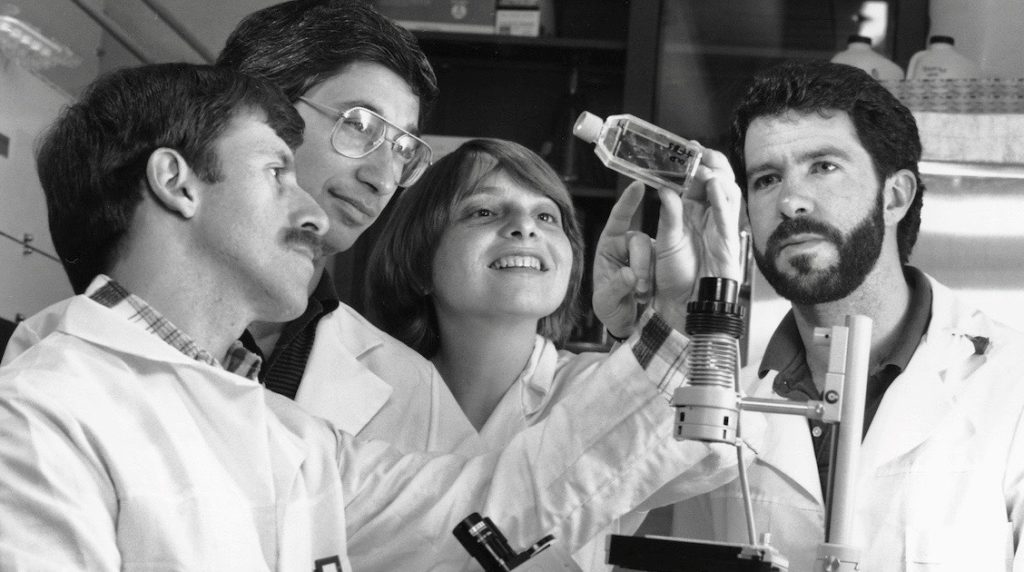 Evolution
Evolution
 Medicine
Medicine
The Costs of Defensive Science


I used to compete in speech and debate, and one topic I had to study was medical malpractice. In our highly litigious society, physicians and other health-care professionals often practice what is known as “defensive medicine.” This means they overuse extra tests and other services to protect themselves, or avoid taking on high-risk clients. They seek cover in case of a bad outcome.
Now, that doesn’t sound so bad, and in small amounts maybe it wouldn’t be a big issue. But a paper in the American Medical Association’s journal JAMA Internal Medicine cites a study finding that defensive medicine costs $46 billion each year.
Here’s one story from the American Academy of Family Physicians website:
One family physician with firsthand knowledge of the use of guidelines in litigation is Dan Merenstein, M.D., of Washington, D.C. As a third-year resident trained in a shared decision-making model, in 1999 he discussed the risks and benefits of prostate cancer screening with a 53-year-old male patient who subsequently declined to have a prostate-specific antigen test. Merenstein didn’t see the patient again until four years later, when the patient became a plaintiff in a lawsuit, seeking damages from Merenstein and his residency. The patient had been diagnosed with prostate cancer in the years following his physical exam with Merenstein.
…
Practicing FPs should proceed carefully. Merenstein, now a fellow at Johns Hopkins University, Baltimore, in the Robert Wood Johnson Clinical Scholars Program, at one point questioned whether he would return to practice medicine. He currently sees only urgent-care patients and admits, “I order more tests now, am more nervous around patients; I am not the doctor I should be.”
But Merenstein says he still believes in evidence-based medicine.
“I hope I’ll go back to the way I should practice, but I’m not sure,” he says. “I don’t want to go through that again.”
When I read that it struck me as somehow…familiar. Dr. Merenstein practiced “evidence-based medicine,” in line with his training, according to what he held to be “the way I should practice.” And in his professional life, he got burned for it. Now he practices what you might call avoidance-based medicine, trying to keep himself safe.
Compare this to the situation of evolution critics and the way that, out of an abundance of caution, they keep quiet about their ideas. Scientists, professors, and students hold their tongues because they are afraid of career repercussions. They’ve heard of colleagues who stepped out of line and were shunned by the scientific academic community or otherwise had their professional lives ruined. They take refuge from smothering orthodoxy in what you might call defensive science.
Defensive medicine is a problem because a physician’s chief concern should be for his patient, not for the cost of his malpractice insurance. Similarly, a scientist should be free to objectively consider and advance new ideas — in short, practice evidence-based scientific inquiry — not just adhere to the official positions of influential professional organizations.
In both medicine and the study of biological origins, there are prices that come from being forced into a defensive posture. In medicine the cost is measured in billions of dollars, and in the quality of health care. In biology, there’s a human cost as scientists and educators work under a cloud of threat, apprehensive that someone may find out about their private doubts and convictions.
There’s a heavy cost for us all, too, if we care about the pursuit of truth. We want to know what’s true about how life arose and diversified, but the demand for orthodoxy works to keep us in the dark.
As a result of defensive medicine, various kinds of tort reform have been proposed. In the context of origins science, for scientists, professors, and students, the solution is academic freedom, aka Free Science.
Photo source: National Institutes of Health, via Wikimedia Commons.
